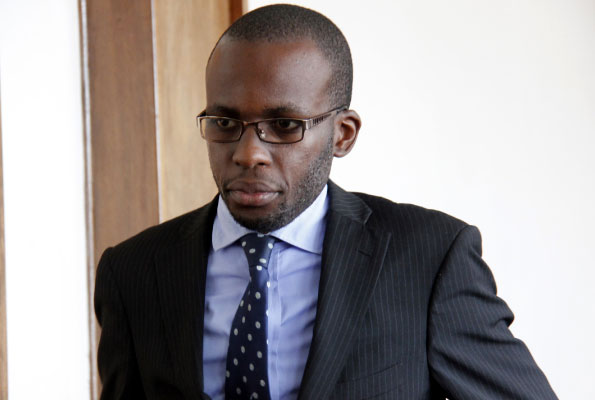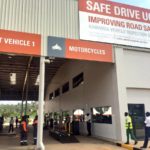City lawyer, Andrew Karamagi last week started a campaign against the mandatory vehicle inspection, saying it was the latest episode of extortion and daylight fraud by lazy and incompetent public officials who are in cahoots with disingenuous business interests disguised in the veils of road safety.
However, while speaking to media, the National Road Safety Council Secretary, Ronald Amanyire defended the exercise, saying neither police nor customs department or UNBS have the mandate to inspect vehicles.
With both having different stands on the exercise, the two were set to face off today morning, thanks to NTV that had planned to host them.
Surprisingly, only one of the two, Karamagi, appeared on the show and we have since learnt that Amanyire exited the studios on arrival of the contoversial lawyer.
“Before the interview this morning on NTV, I walked into the station’s premises and found an immaculately dressed Mr Ronald Amanyire of the National Road Safety Council already waiting. He met my intended firm handshake with a brusque touch of my fingers and mumbled a barely audible ‘hello’ when I said good morning to him. His body language was unmistakably hostile.
When one of the Producers of the show invited us to get into the studio, Mr Amanyire refused and told the station’s staff that he couldn’t discuss the mandatory vehicle inspection matter with me on set,” Karamagi narrated after the show.
“Shortly, he left. That’s how I ended up presenting my argument alone with no one to respond to the concerns I was raising. NTV wanted to present a balanced show but the naked arrogance of a public official, to whom I/we pay taxes got the better of him. Now they decide when, with whom and how to speak! Shame on you Mr Ronald Amanyire of the National Road Safety Council!”
In July 2016, the government made inspection of motor vehicles compulsory at least once a year. Société Générale de Surveillance (SGS) which was handed the tender of inspecting vehicles charges Shs120,000 to inspect a taxi among other cars.
Though Karamagi contends public bodies are mandated and owe Ugandan taxpayers a duty of care with regard to the durability of public infrastructure (roads and accessories like traffic lights), automobiles on the market, quality of the fuel that cars consume as well as registration and licensing.
“Has the Uganda Police Inspector of Vehicles been rendered useless? Have the Uganda National Bureau of Standards and the Customs Department at URA abandoned their roles of ensuring that all imported products are mandatorily inspected and their fitness for purpose established before they get into the market?
“If these two haven’t abandoned their statutory duties (see Section 3(e); 3(f) and 43 of the UNBS Act, Chapter 327 of the Laws of Uganda), why should we pay twice for a service that was already provided and paid for by the end-user at the point of purchase? How will the cash-strapped National Road Safety Council which received a paltry one hundred and fifty million shillings for Financial Year 2014/2015 function when part of its mandate has been outsourced to a private player, SGS?”
Karamagi gives an example of the recent mandatory installation of seatbelts.
“Years ago, road users were stampeded into installing seatbelts. Owners of heavy commercial vehicles had to incur an extra cost of purchasing and having a speed governor fitted.
The ostensible reasons of road safety were clouded by the questionable circumstances surrounding the award of this tender and the abrupt conclusion of the exercise. It did not help matters when it was widely rumoured that a businessman had imported container-loads of seatbelts and speed governors and having failed to get market for the consignments, connived with top guns in law enforcement and that as soon as the last seatbelt and speed governor had been sold, the exercise stopped!”
He also questions the procedure that was followed to award the tender to SGS.
“Was a competitive procurement process followed for this mandatory inspection? Who owns the Ugandan subsidiary of SGS? What are the technical competencies of the people conducting the actual inspections? Are they accredited by car manufacturers? Are they automotive engineers?
“You do not need a magnifying glass to see the fingerprints of fraud, collusion and impropriety surrounding what might in all likelihood turn out to be the latest in a series of continuing heists by public officials who connive with private players to fleece Ugandans under the veil of law enforcement,” Karamagi asserts.








